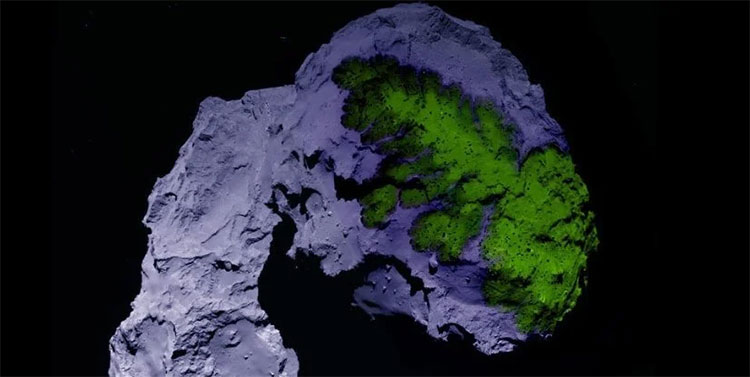Testing to bring the metal mining bacteria to the International Space Station
In a unique test of introducing three species of bacteria to the International Orbital Station, scientists hope to find a way to use minerals to 'extract' minerals from soil and rocks in gravity and the environment. simulating the gravity of Mars.
According to the announcement of the European Space Agency (ESA), at the International Space Station (ISS), astronauts have begun a unique experiment to find out how specific bacteria will be 'mining' minerals in gravity and in environments that simulate Mars's gravity.

If humans use bacteria to exploit rocks on Mars, it will reduce the need to transport materials from Earth - (Photo: Alan Rockefeller).
Researchers have commissioned a series of miniature biological incubators on ISS, which allows bacteria to grow, a bacterium that can exploit Earth's rock resources. An experiment called BioRock will help determine if bacteria can do the same in space and whether the ability of these organisms to change in low gravity.
On Earth, these bacteria helped people recover metals such as copper, iron and gold from the rock or scrap industry. They have the ability to create biofilms and release acids that help accelerate the release of metals.
Charles Cockell, a biologist at the University of Edinburgh (UK) and principal researcher of the Biorock project, explains that if humans use those bacteria to exploit rocks on Mars, that will do reducing the need to transport materials from Earth.
He adds that understanding how bacteria interact, develop and extract elements from the rock surface under micro-gravity conditions will tell us whether low gravity affects the ability of the microorganisms to cling. on the stone surface or not. Researchers also find out whether bacteria can help exploit rocks on bodies other than Earth.
3 species of bacteria were selected for testing. Now that they are in orbit, astronauts cultivate them on small stones inside the biological incubator about 10cm in size. Some incubators simulate the gravity of the Earth, some - the gravity of Mars and others - the gravity of the Moon. Then, the incubator will be brought back to Earth, where scientists will draw conclusions from the experiment.
- International Space Station increased the orbit by 1.5km
- International space station infected with strange bacteria
- Space station increased in height to catch Soyuz
- Visit 'the longest road' on the ISS International Space Station
- Bacteria suspected of coming from the alien on the body of the ISS station
- Russia will bring three astronauts on the ISS to Earth
- UFO hovering near the International Space Station?
- Russia delayed two flights to bring people to space
- How big is the International Space Station (ISS)?
- Discover shock about bacterial growth in space
- International space station increased altitude by 2km
- America spends more on Russian rents to bring people to space
 Van Allen's belt and evidence that the Apollo 11 mission to the Moon was myth
Van Allen's belt and evidence that the Apollo 11 mission to the Moon was myth The levels of civilization in the universe (Kardashev scale)
The levels of civilization in the universe (Kardashev scale) Today Mars, the sun and the Earth are aligned
Today Mars, the sun and the Earth are aligned The Amazon owner announced a secret plan to build a space base for thousands of people
The Amazon owner announced a secret plan to build a space base for thousands of people